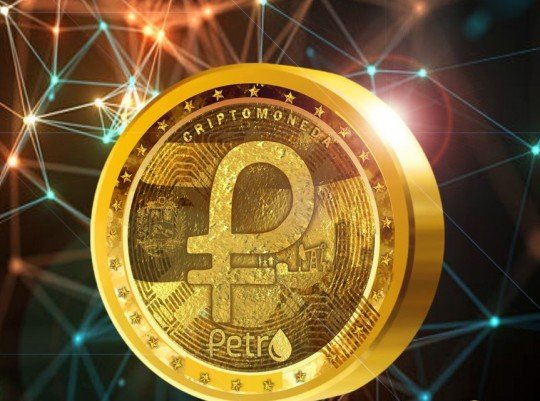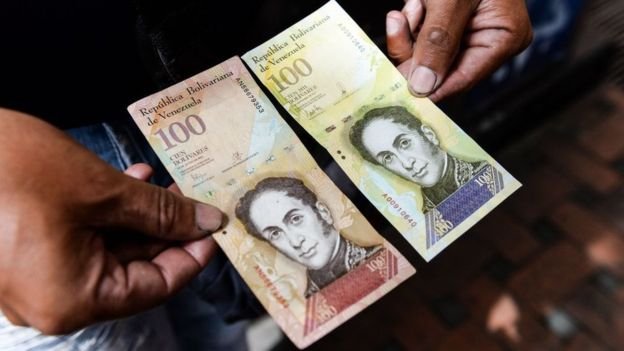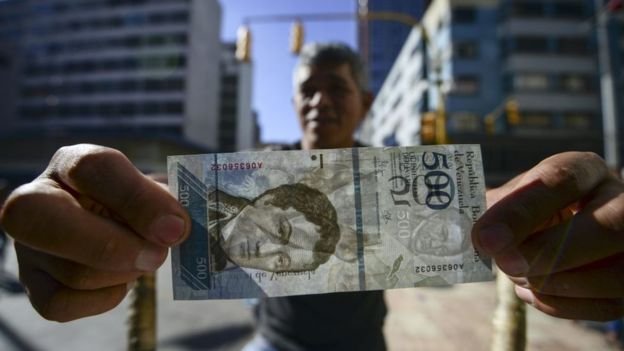
Viability
The technical aspects, at first, should not be an obstacle. "You can connect to the internet and create your own cryptocurrency in 20 minutes by copying and pasting software code," explains Garrick Hileman.
The important thing, as Jesús Palau says, is that someone else gives value as a bargaining chip and dares to use it.
The two experts insist that it is difficult to make an analysis with the little information that has been released about the petro. But, adhering to what was revealed by Maduro, both advanced opposing assessments.
In his opinion, Venezuela should appoint an independent custodian to guarantee that, in case of non-payment, these raw materials will reach the creditors.
"It's a middle ground, considering the current situation in Venezuela, it seems to be a step in the right direction because its currency is in free fall because of inflation and a poor monetary policy."
Advantage

Having a cryptocurrency would provide certain benefits.
"Having a cryptocurrency is not a special thing, perhaps the only special thing that it has is that it can help to circumvent in some way the economic blockade of the United States," admits Palau.
Among the sanctions imposed by the Donald Trump government is the prohibition of carrying out transactions with debt securities and shares issued by the South American government and its state oil company (PDVSA).
This company is the main source of income for the State, so overcoming these restrictions would be among its priorities.
Both experts believe that the petro could help achieve this goal, provided that the partners of Venezuela agree to use it.
Another advantage is that this new mechanism could attract new international investors among the cryptocurrency enthusiasts at a time when the country's credibility is low.
"There has been a lot of enthusiasm for cryptocurrencies in recent months in particular and this is a way to capitalize on it," says Hileman, who believes that the government may also be interested in petroleum circulation within its borders.
"I think this is also designed to attract the national public, whose interest in bitcoin and other cryptocurrencies has grown a lot ... Maybe if some Venezuelans find out that the country will soon release its own cryptocurrency, they will stop using bitcoin" , Explain.
Finally, Palau points out that the petro could be "a disguised way of defaulting on normal markets", such as sovereign bonds, but leaving open access to "new investors who believe they will not default".
For Palau, the proposal does not sound very promising: "A currency depends on the quality of the country, it does not matter if it is electronic or not, and Venezuela is not in a very good situation".
Palau was skeptical about the guarantees offered by the government: "Theoretically, (the petro) would be backed by the raw materials of Venezuela, but I believe that this raw material is already available to others (state creditors)."
"The only way that someone gives money to Venezuela, given its current economic situation, would be to give a privileged treatment ... Convincing someone that the only ones who will charge in gold or oil will be those who have this cryptocurrency."
What does Venezuela have to do with the bitcoin virtual currency reaching record values?
Hileman, however, believes that the petro is viable: "If it is properly armed, it is something that can work and even solve some of Venezuela's problems, such as giving it a reliable currency."
For the researcher of Cambridge, the State must prioritize the "honesty and transparency" to carry out a project like this.
"Where will these assets be stored (oil, gas, gold and diamonds)? Who will guard them? Will they be in New York? In London?"
Disadvantages

Venezuela is not the first country to consider a project like this. States such as Russia, Estonia and Dubai announced this year their intention to launch digital currencies.
The difference is that, while these seek to give themselves an air of modernity, Venezuela tries to find a way out of an unprecedented crisis. That's why he's the only one who has offered to back the currency with an asset.
"There are many questions still to be answered and many barriers, I would not be surprised if some of these announcements do not materialize because of all the obstacles that central banks have to do cryptocurrencies," says Hileman.
The largest of these is to implement the cryptocurrency without causing a banking crisis.
Currently, only banks work directly with the central bank of each country, which acts as the regulator of the sector within its borders but does not offer direct services to citizens.
"If central banks give private individuals the same service that commercial banks offer ... in times of panic, people will prefer to take their money out of the commercial bank and put it in the central bank (through the state cryptocurrency), which it is an option that does not exist right now, "explains the researcher.
Being the custodians of the nation's reserves and the monetary authority, having deposits in central banks would be much safer.
"Commercial banks would run out of money, collapse and take the economy with them," he warned.
Congratulations @hidroluisart! You have completed some achievement on Steemit and have been rewarded with new badge(s) :
Click on the badge to view your Board of Honor.
If you no longer want to receive notifications, reply to this comment with the word
STOP